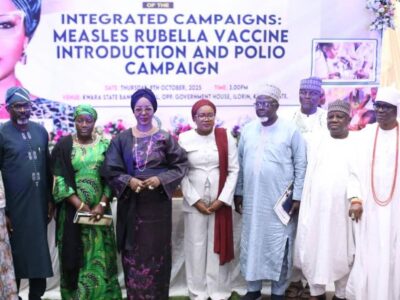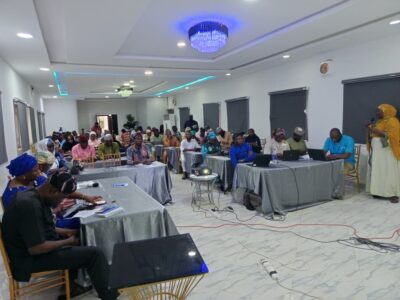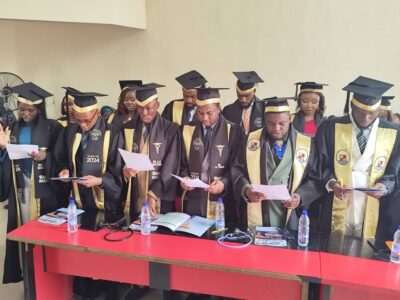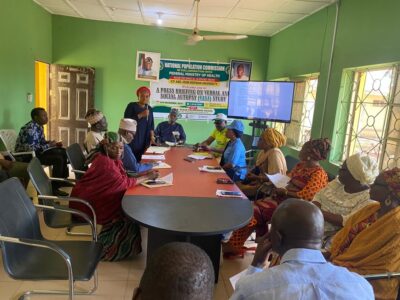The Federal Government has expressed determination to ensure that the country was free of dog- mediated human rabies to achieve zero rabies target by 2030.
Speaking at a workshop in Abuja, to validate a National Strategic Plan for Elimination of Dog – Mediated Human Rabies in Nigeria, Dr Maimuna Habib, the Chief Veterinary Officer of Nigeria (CVON), said the target was a global agenda.
Habib, who is also the Director of Veterinary and Pest Control Services, Federal Ministry of Agriculture and Rural Development, said that rabies was one of the deadliest zoonosis in the world.
She was represented by Dr Peter Umanah, Chief Veterinary Officer, Animal Health Division.
She said that the virus was caused by neurotropic RNA virus of the genus Lyssavirus.
Habib said that dogs were the main reservoir of the diseases and remained the commonest 99 per cent means of transmission to humans.
She, however, said that in spite of the associated high fatality, rabies is 100 per cent preventable.
“In Nigeria, dogs are predominately the major reservoir of rabies with over 1, 000, 000 persons at risk of exposure to rabies virus through dog bite annually as majority of dogs are unlicensed, unvaccinated and roam freely in the environment,” she said.
Habib said that the country, in the past few months had witnessed increasing cases of Rabid Dog bites which had resulted in deaths.
Habib reiterated the need to institutionalise and consolidate the ” One Health Initiative” in the country.
She said that zoonotic diseases like rabies could only be eliminated by concerted and collaborative efforts of relevant stakeholders.
She said that the Federal Government had stepped up measure to align with the global agenda of achieving freedom from dog– mediated human rabies by 2030.
“The Federal Ministry of Agriculture and Rural Development in collaboration with the Ministries of Health and Environment, and Nigeria Centre for Disease Control as well other relevant stakeholders produced a draft National Strategic Plan for elimination of dog mediated human rabies,” she said.
In a goodwill message, Dr Guy Kouame, Food and Agriculture Organisation (FAO), representative, said that rabies was an deadly disease and had devastating effects in terms of mortality.
“It requires that all hands must be on deck to ensure the fight against rabies is effective.
“The FAO pledged their support toward the control and eradication of rabies in Nigeria,” Kouame said.
Also, Dr Olayinka Umar- Farouk, Deputy Project Director, Risk Communication Breakthrough ACTION Nigeria (BA-N), said the scourge of rabies in Nigeria is one that is preventable.
Umar- Farouk who was represented by Dr Obinna Onuoha, BA- N, said the zero rabies by 2030 was achievable, and called on all health stakeholders to really dig in and put in the work required to end rabies.
Dr Dorcas Mernyi, Programme Manager, Zoonotic Programme, ministry of Health, said rabies is a worrisome disease that requires all to collaborate and end it.
She said stakeholders would ensure that a document was produced to eliminate rabies in the country in 2030.
The WHO representative, Dr Kikeope Oluwarore, said the organisation is supporting Nigeria to eliminate rabies from the country.
The Head of Epidemiology, NCDC, Dr Abubakar Jafiya, said the Centre would continue to work to ensure that dog- mediated human rabies is eliminated.
The Director AU- IBAR, Dr Nick Nwankpa, said rabies had recorded the highest number of outbreaks from 2015 to 2020 in Africa when compared to other zoonotic diseases.
Also, Dr Samuel Anzoku, Chief Veterinary Officer, Public Health, said eradicating rabies by 2030 was part of the global agenda.
Meanwhile, the National Technical Working Group on Implementation for elimination of dog- mediated human rabies was inaugurated by Habib.
The Chairman of the Technical Group is Dr Habib.
Some of the terms of reference included, facilitate implementation of the National Strategic Plan(NSP) for elimination of dog mediated human rabies.
It will also advocate and create awareness on the NSP across the three tiers of Government and other stakeholders. (NAN)










Comments